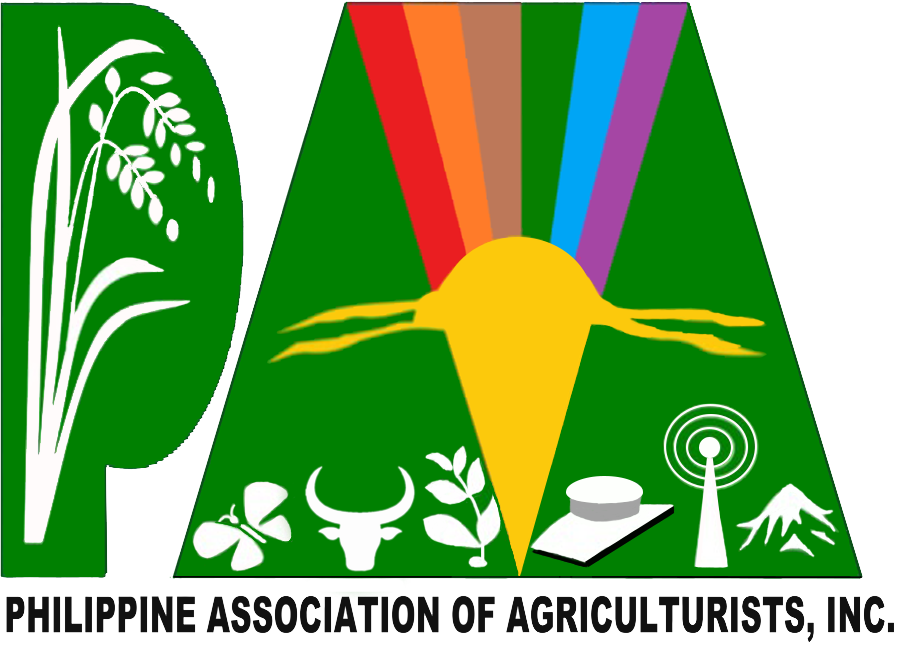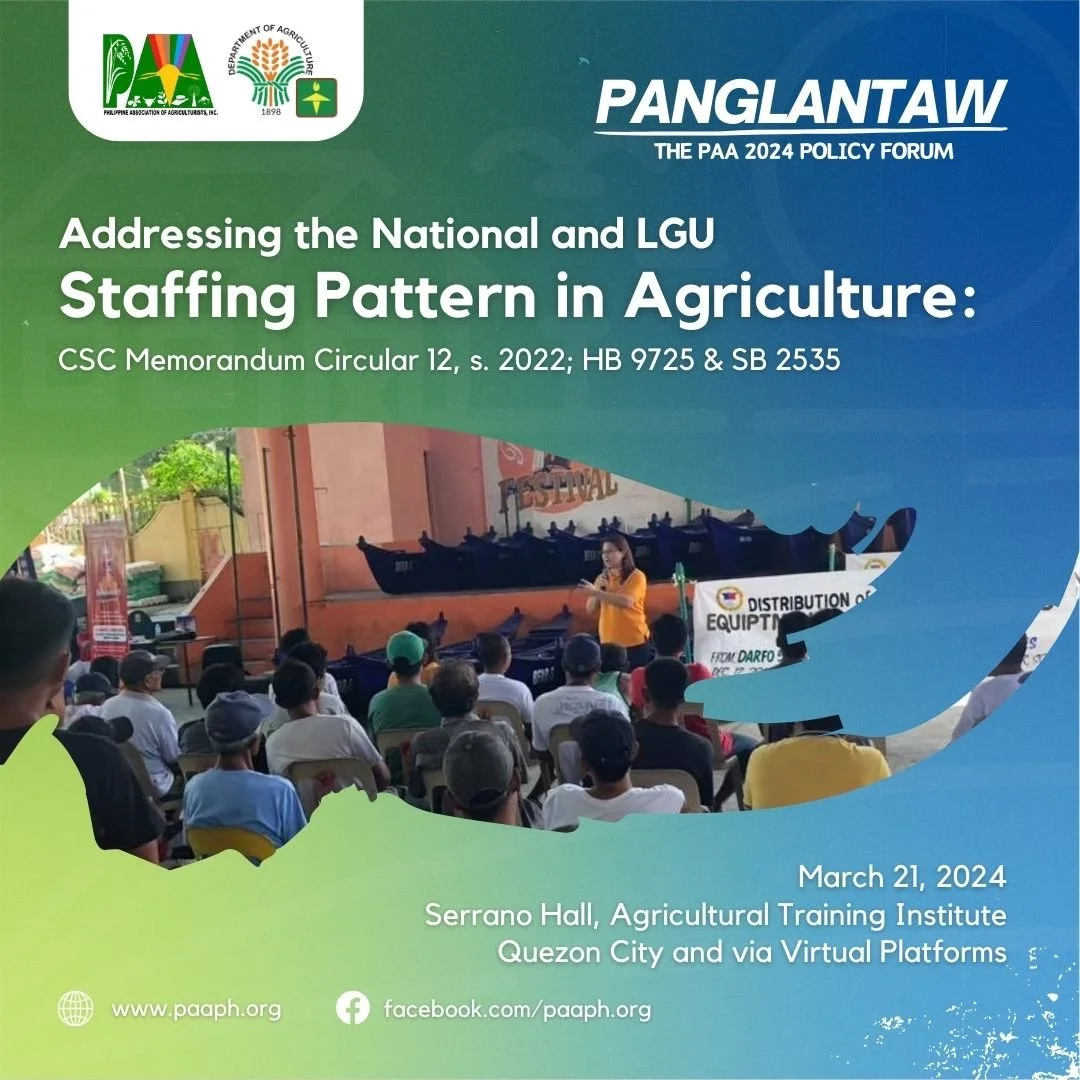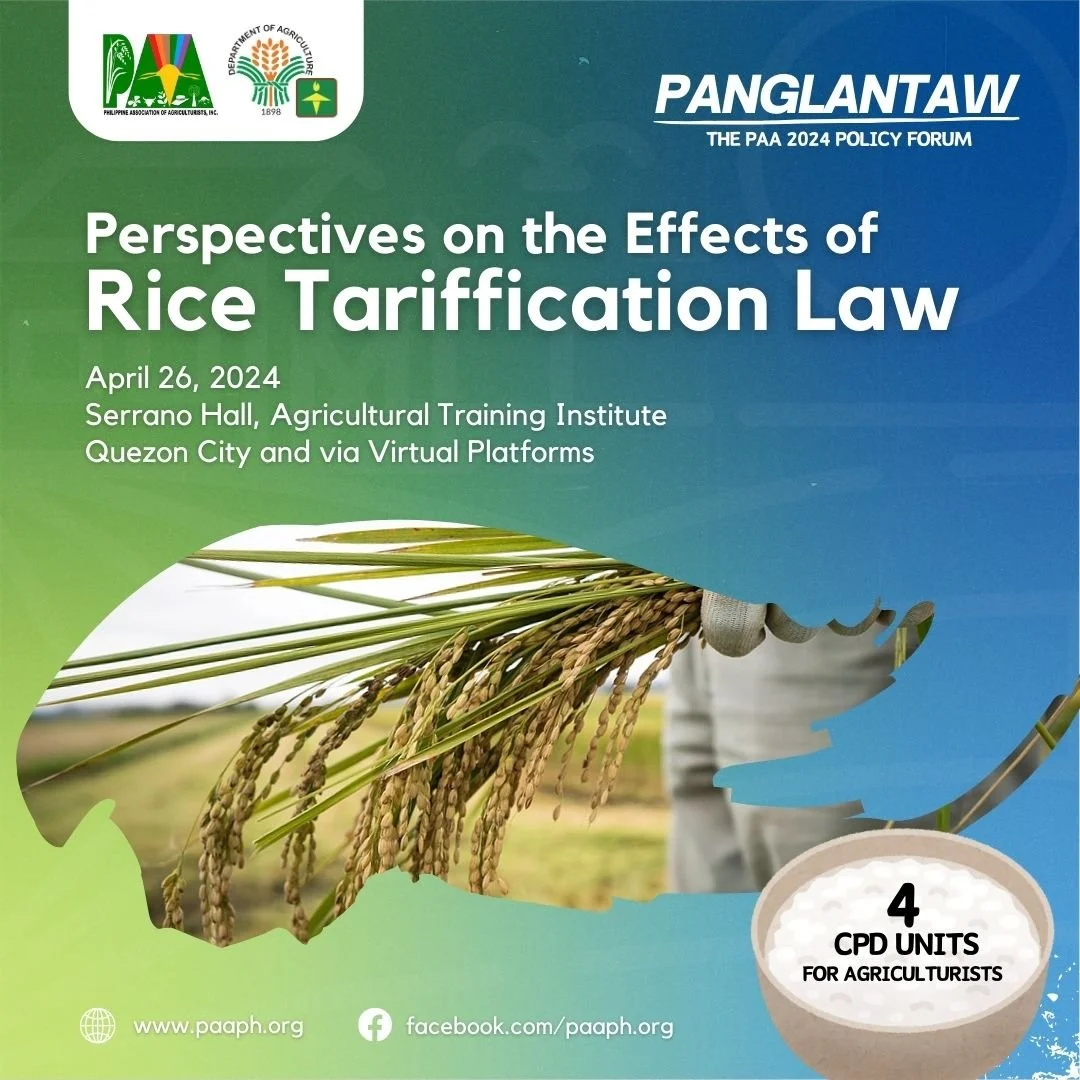The year 2024 is a vibrant year for Philippine agriculture, likewise a challenging one for the various players of the sector—the legislators, executives, agriculture professionals, and our farmers, most especially. While various factors account for the growth of the agricultural industry, effective policy formulation and implementation play a crucial role in promoting sustainable and just socio-economic development. Legislations in place need thorough investigation, counterchecking, and revisiting, in order to magnify its contributions and effects to the intertwining activities in the sector. Furthermore, by examining these realities, we can have a clearer sense on how the sector can move forward and contribute to the bigger picture of nation-building and food security.
The Philippine Association of Agriculturists, Inc. (PAA) is an Accredited Integrated Professional Organization (AIPO) under the Professional Regulation Commission (PRC) of the Philippines. It comprises seven (7) Associate National Professional Organizations (ANPO) and seventeen (17) regional chapters established across the country. As one of its major undertakings, PAA seeks to serve as a channel to inform, equip, and involve Filipino agriculturists, its professional and affiliate members, institutional partners, and clientele to respond to opportunities and challenges confronting the Philippine agricultural system.
As an AIPO, the PAA must create avenues and lobby efforts towards the crafting, mainstreaming, and improvement of policy recommendations, laws, rules and regulations, and legislative orders to significantly improve the agriculture profession and sector.
In order to provide its humble contribution to the positive policy and advocacy development of the Philippine agricultural sector, PAA is launching “Panglantaw: The Philippine Association of Agriculturists, Inc. (PAA) 2024 Policy Forum,” a Cebuano term that means “perspective”. With the PAA Policy and Advocacy Committee as the head implementing unit, the forum aims to unearth various perspectives on pressing issues in agriculture through constructive and dialogic discussions. Ultimately, it seeks to expand the consciousness and responsiveness of Filipino agriculturists to our sectoral realities, as affected by the different existing policies at the national, regional, provincial, city/municipalities, and barangay levels.




